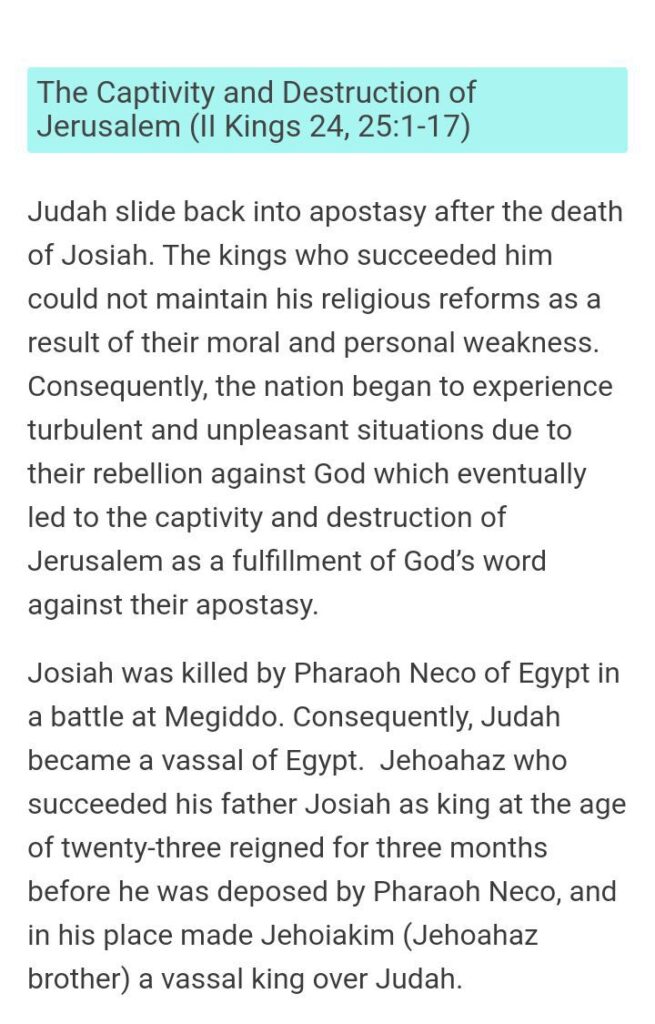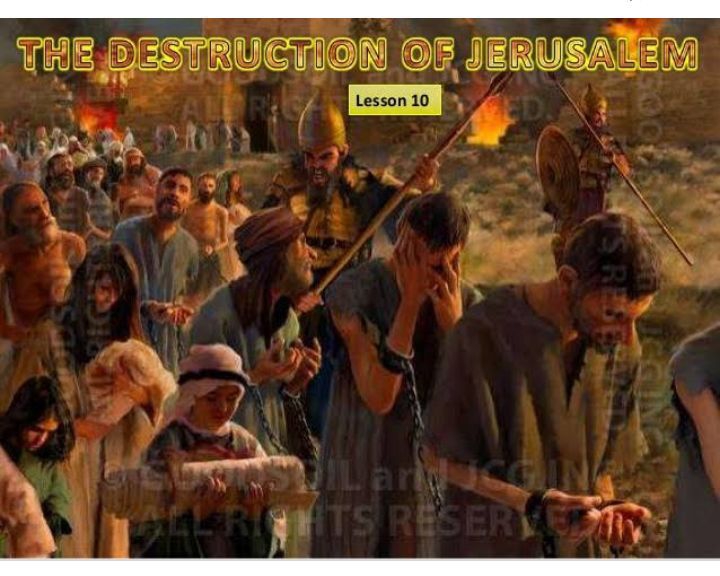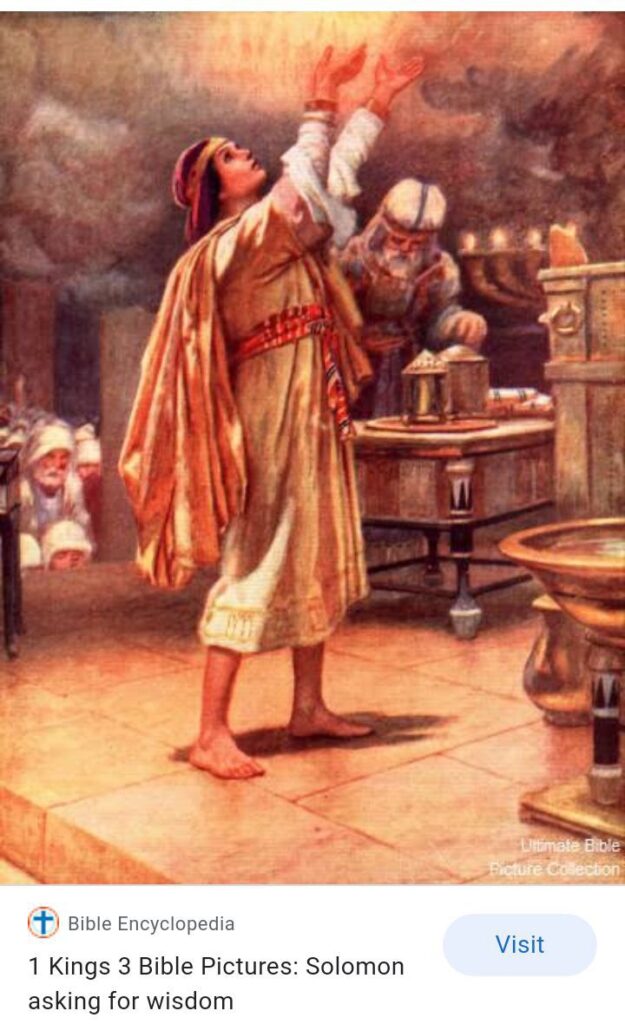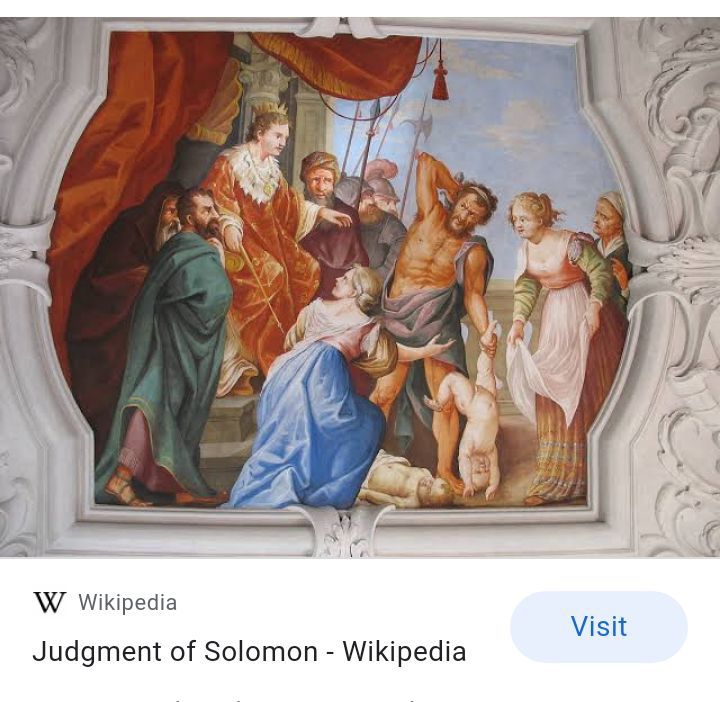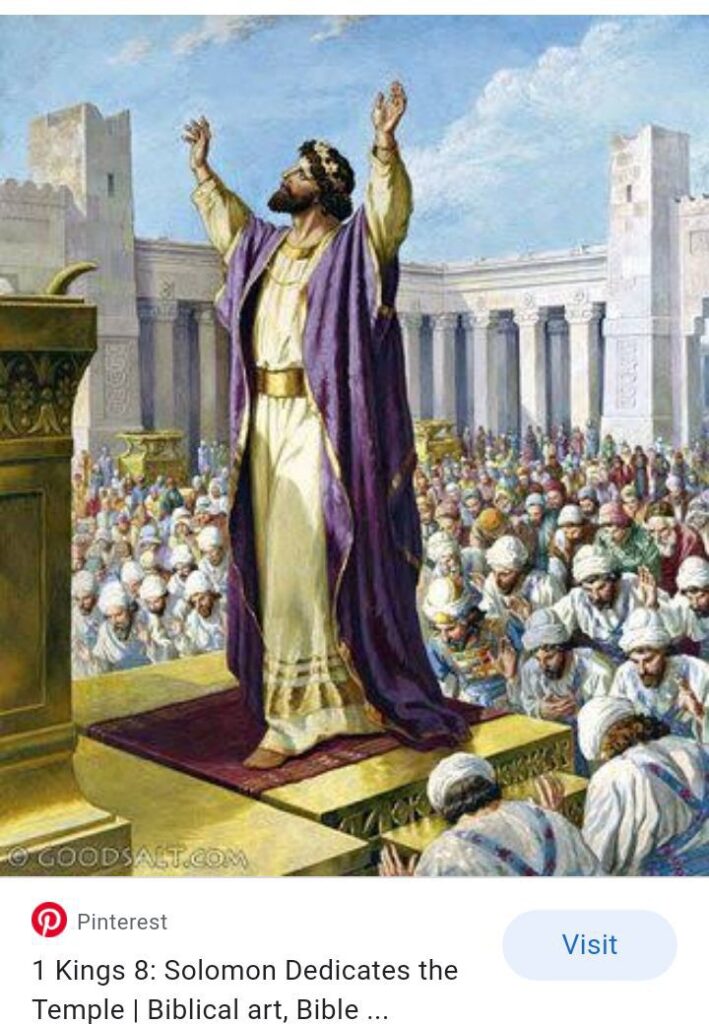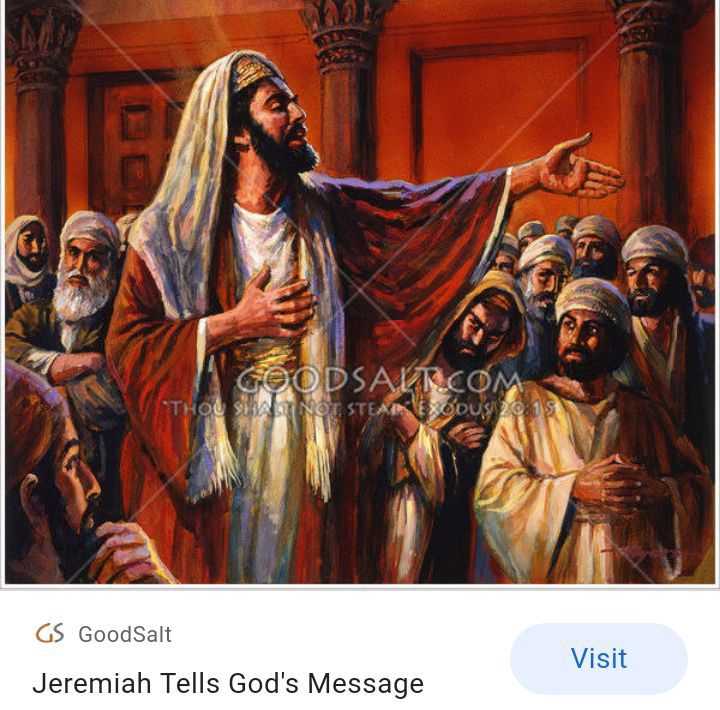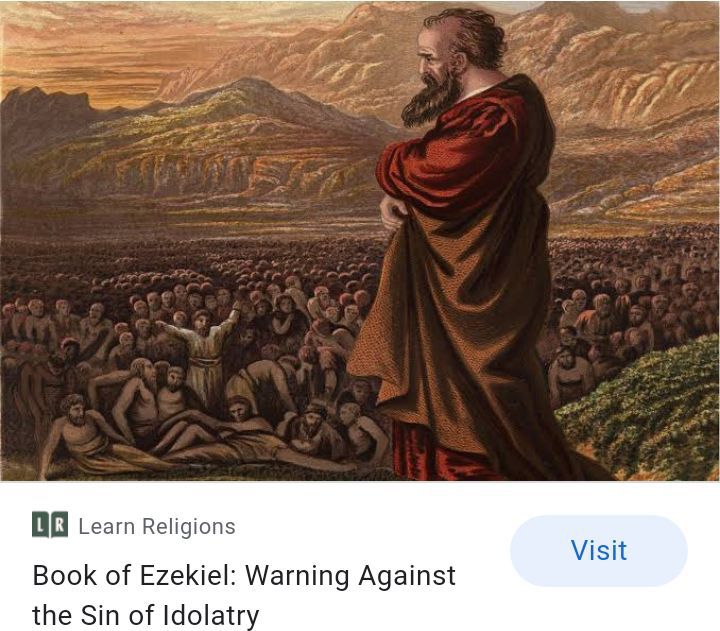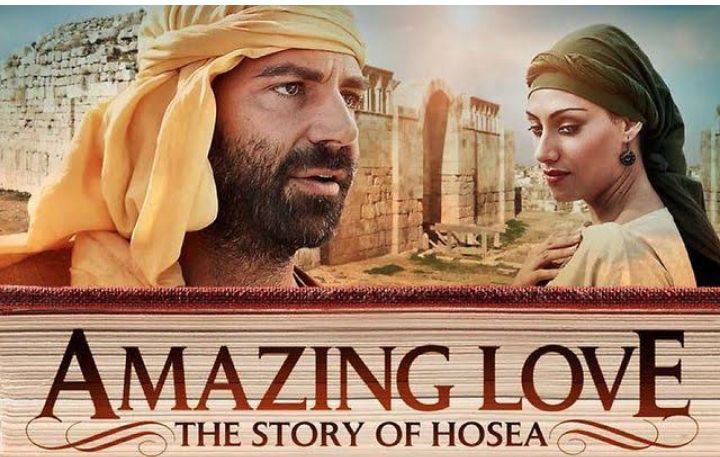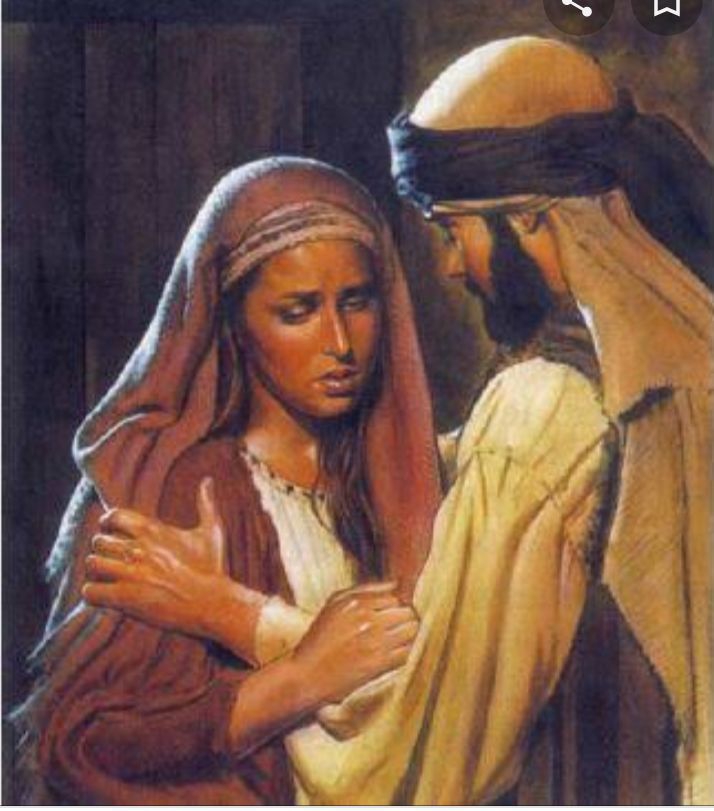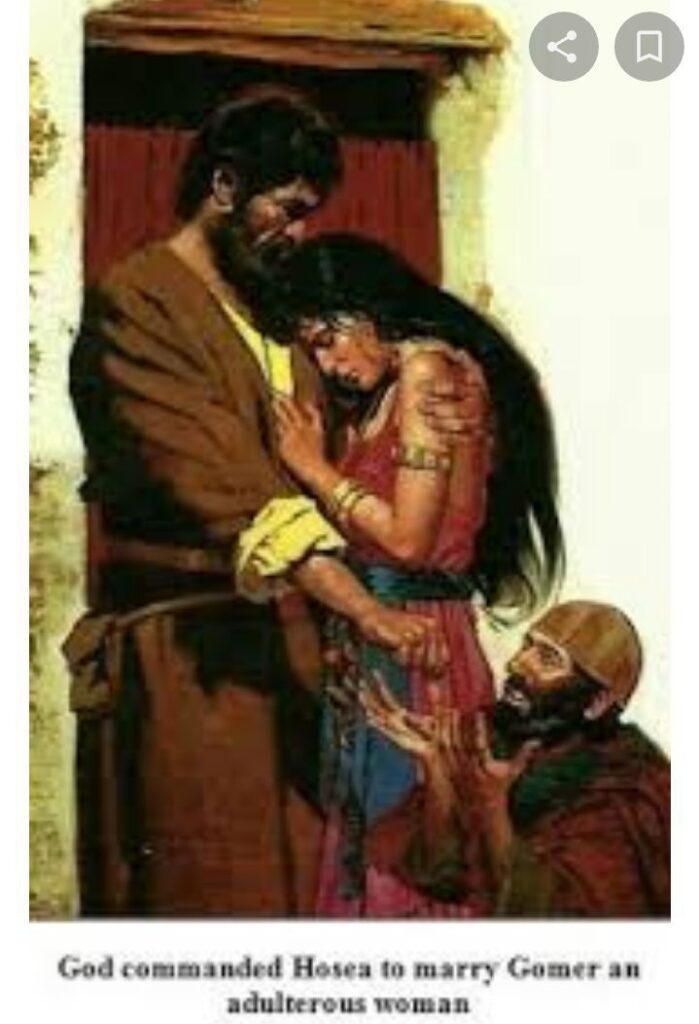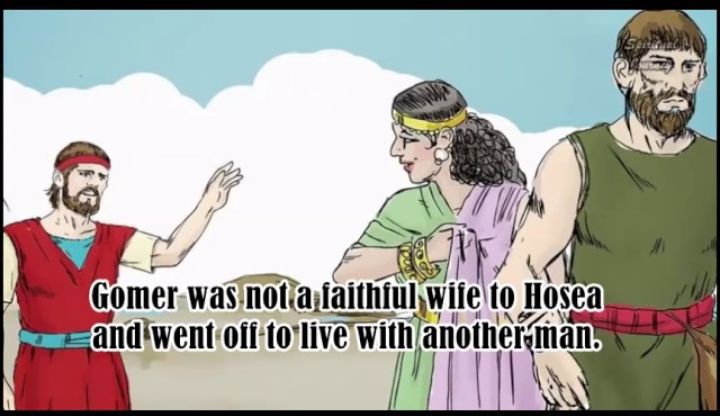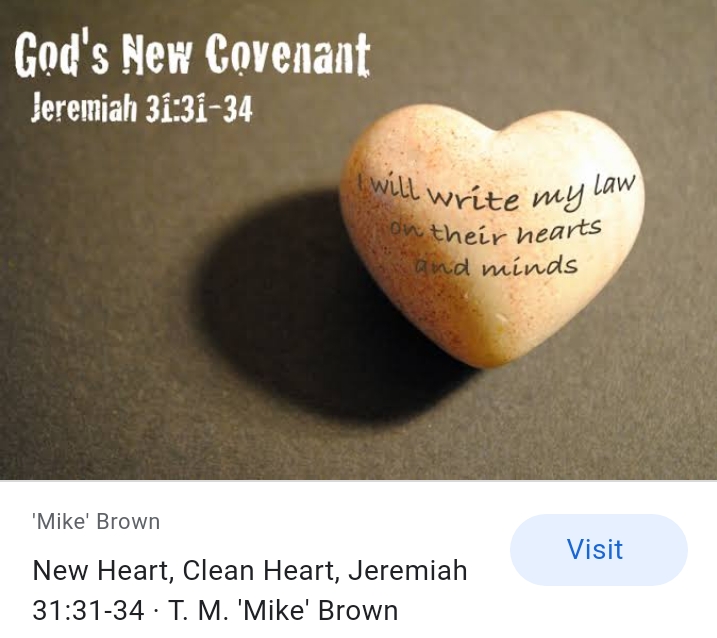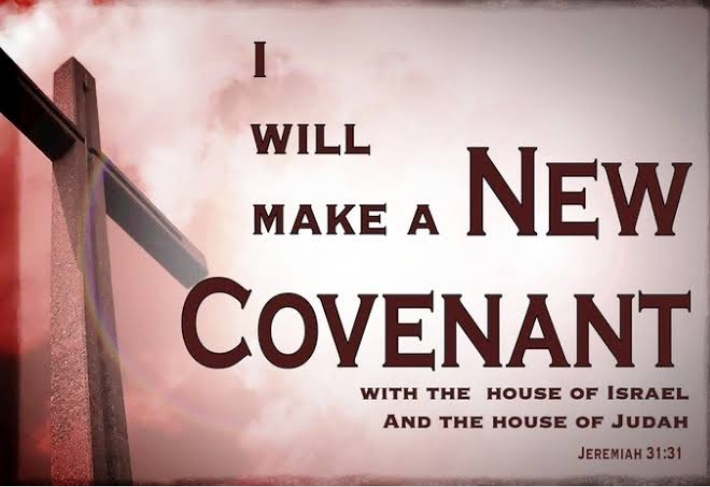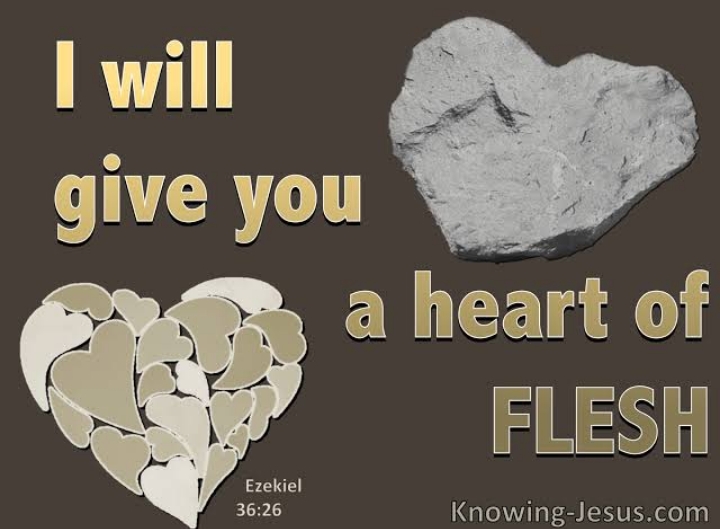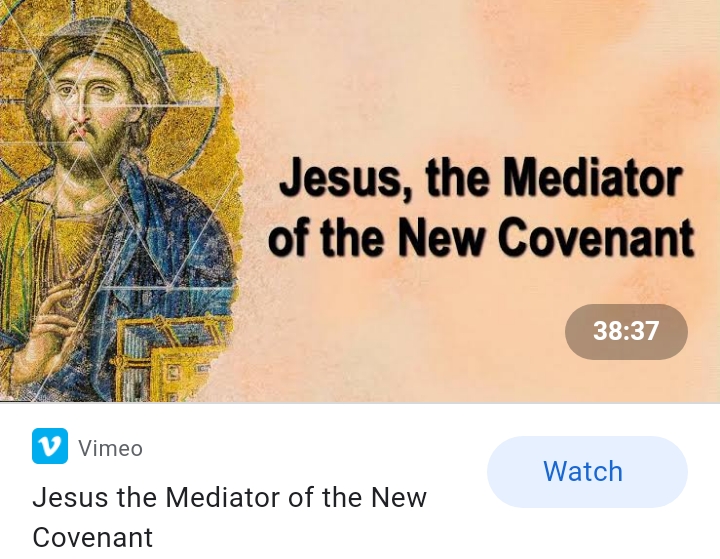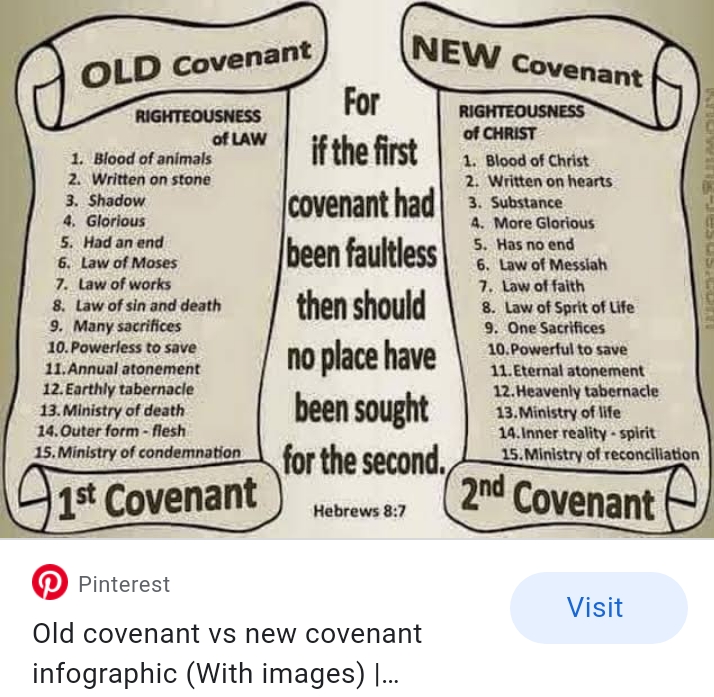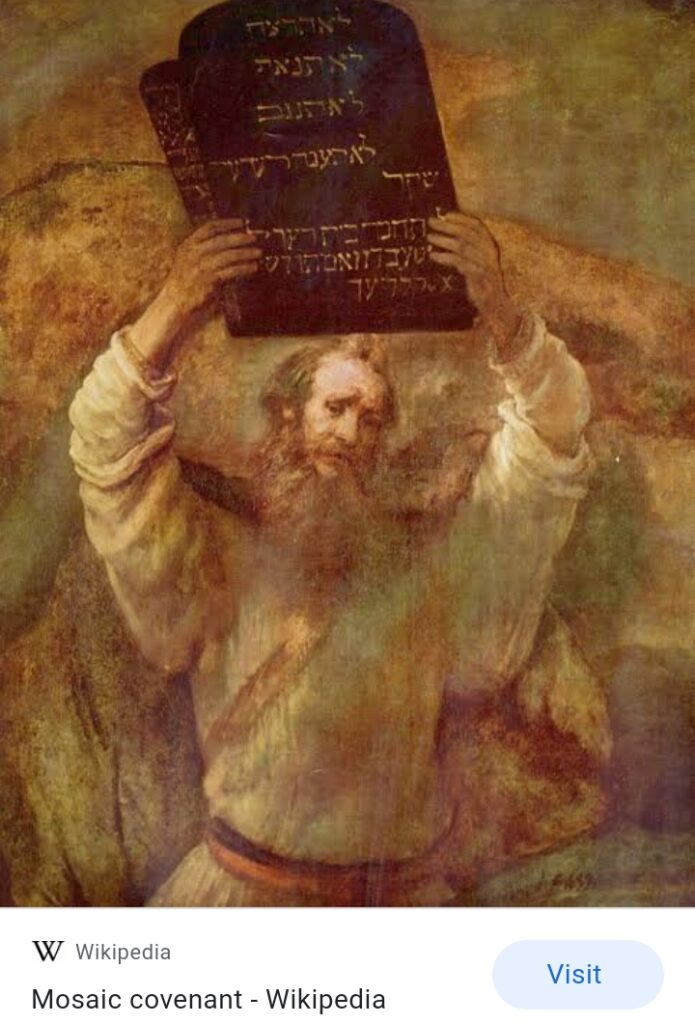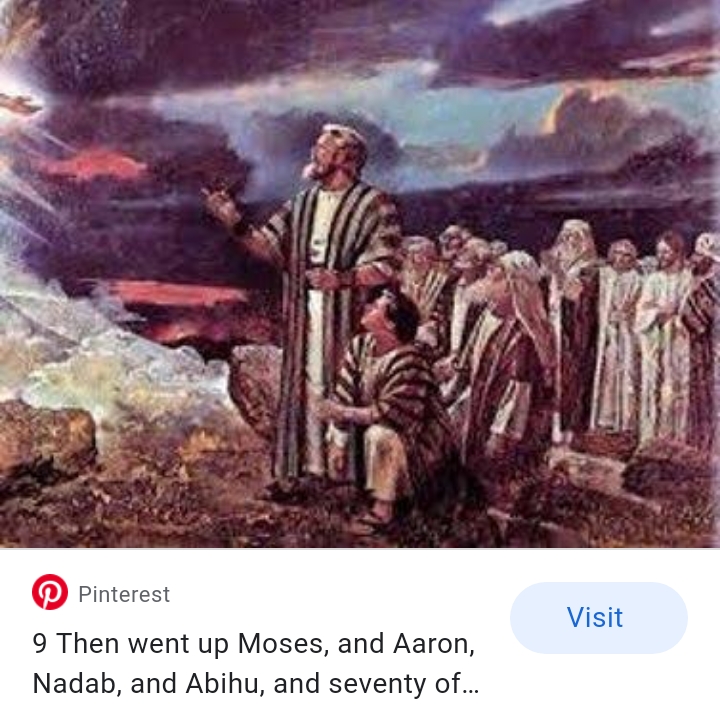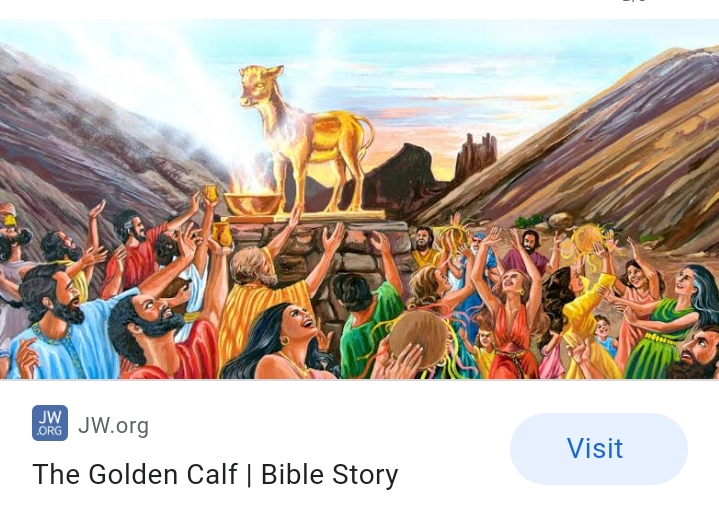14th week … 8th Sept., 2020
How are you doing? Hope you are good and staying safe. God bless you all. Pls, note that you are to write your answers in your CRS note as well so that we can make reference to the corrections when we resume by God’s grace.
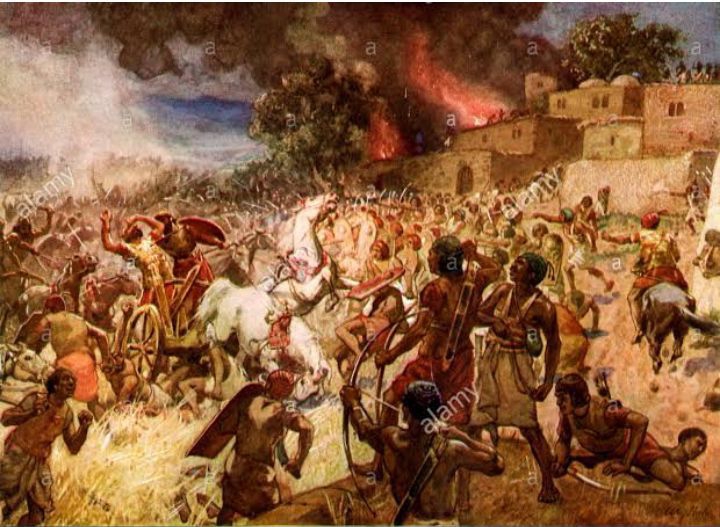
The death of King Josiah at Megiddo
Attempt this question:
Itemise 5 Religious reforms of Josiah
14th week…1 Sept. 2020
How are you doing? Hope you are good and staying safe. God bless you all. Pls, note that you are to write your answers in your CRS note as well so that we can make reference to the corrections when we resume by God’s grace.
KING JOSIAH’S RELIGIOUS REFORMS IN ISRAEL
After the discovery of the book of the law in the temple, King Josiah initiated some religious reforms.
Josiah ordered Hilkiah, the priest to bring out all the vessels made for Baal and Asherah and all other gods.
He burnt them outside Jerusalem in the fields of the Kidron and took the ashes to Bethel.
He deposed the idolatrous priests whom the king of Judah had ordained to burn incense in high places to honour Baal and other gods.
He broke down the houses of the male cult prostitutes which had taken over the house of the Lord.
He went all over the city and defiled and chased out the high priests from the temple where they burned incense to the gods.
He defiled Topheth to prevent people from sacrificing their sons and daughters as burnt offering to Molech.
removed the horses the king of Judah had dedicated to the worship of the sun god at the entrance of the temple and burned them.
He destroyed all the altars put in place by Manasseh, Solomon, Jeroboam and other kings before him.
Josiah carried out his reforms up to the Northern Kingdom; he removed the shrines of the high places that were in the city of Samaria/ Bethel which the Israelites had made.
Josiah killed and burned the bodies of all the priests of the high places.
He restored the Passover feast and the Sabbath and commanded the people to keep it as it was written in the book of the covenant/He restored the ancient faith.
He abolished idolatry, witchcraft, sorcery, soothsaying, divination from Judah/ Jerusalem.
Altars at the high places were demolished and worship was centralized in Jerusalem.
13th week….25th Aug.,2020
How are you doing? Hope you are good and staying safe. God bless you all. Pls, note that you are to write your answers in your CRS note as well so that we can make reference to the corrections when we resume by God’s grace.
Factors which led to the division of the kingdom of Israel
Foreign wives – Solomon had married many foreign princesses who bought high places ( idols) with them the worship of foreign gods to Israel.
Sol. Worship ( idols) – Solomon not only allowed his foreigners wives to worship their gods but also built high places of worship where his wives worshipped their gods. This displeased God.
Solomon broke the covenant with God by disobeying his commands not to worship foreign gods. ( 1 kings 11: 9- 10)
Over taxation – In order to support his harem of wives and court officials, Solomon needed a lot of money and this he got by overtaxing his subjects. This was oppression.
Forced labour – Solomon spent years and a lot of resources building his own palace and the temple, projects made him introduce forced labour in Israel.
Kingdom divided redness of Jeroboam – The over- taxation and forced labour made the Israelites dissatisfied with Solomon’s rules. The dissatisfaction among the Israelites found a spokesman in Jeroboam.
After Solomon’s death his son Rehoboam succeeded him/ rejection of the advice from the old men
Jeroboam led a delegation of Israelites elders to Rehoboam to ask him to rule them less harshly than his father Solomon. The bitterness of the Northern Kingdom led to the rebellion.
Rehoboam rejected the counsel o
the elders who advised him to tell the delegation that he would rule them less harshly than Solomon. The bitterness of the Northern Kingdom led to the rebellion
He listened to the young men who told him to tell the delegation that he would rule them more harshly than his father cared for him/ Rehoboam listened. The readiness of Jeroboam to lead a rebellion/ encouragement from prophet. Elijah to lead the rebellion North
When Rehoboam told the delegation that his rule would be harsher than his father’ they were so angered and the ten northern tribes of Israel rejected him as King and rebelled against him.
The rebellious tribes chose Jeroboam as their king and only the two southern tribes of Judah and Benjamin remained under the Kingship of Rehoboam. The redness of Jeroboam to lead rebellious tribes/ encouragement of Prophet Elijah to lead rebellion tribe.
The unwise policies of King Solomon( 1Kings 9:15-25)
13th week…. 18th August,2020
Hi Students,
How are you doing? Hope you are good and staying safe. God bless you all. Pls, note that you are to write your answers in your CRS note as well so that we can make reference to the corrections when we resume by God’s grace. The unwise policies of King Solomon( 1Kings 9:15-25)
Rehoboam’s unwise decision and its consequences (1kings 12:1-20).
When king Solomon died, he was succeeded by his son Rehoboam. The people of Israel came to Rehoboam and asked him to ease their burden. He told them to come back in three days when he would give them his response.
He then consulted the elders who advised him to ease their burden. He rejected this advice and went to the youths who told him to make the people work even harder. He accepted the advice of the youth.
This made the people to reject him as king. The other tribes left him and made Jeroboam their king. It is only Judah and Benjamin that remained with Rehoboam as a way of being loyal to the Dynasty of King David.
Question:
What three important lessons can we derive from Rehoboam’s unwise decision.
12th week….11th August, 2020
Hi Students,
How are you doing? Hope you are good and staying safe. God bless you all. Pls, note that you are to write your answers in your CRS note as well so that we can make reference to the corrections when we resume by God’s grace. The unwise policies of King Solomon( 1Kings 9:15-25)
A critical assessment of the reign of Solomon reveals that his much-touted wisdom did not reflect the quality of his reign. The assessment also reveals that politically, Solomon was a big flop.
Expensive Projects which Emptied the National Coffers
Solomon embarked on expensive and prestigious projects. This resulted in the state spending more than the kingdom’s coffers could bear. The building of a temple ( 7 years ), Judgment Hall and armory took so much resource from the national treasury. All the profits Solomon realized from his profitable commercial activities was expended on the projects, leading to much suffering and hardship among his subjects.
Introduction of Forced Labour
In a bid to reduce expenditure for his expensive projects, Solomon introduced forced unpaid labour in Israel. The introduction of forced unpaid labour was burdensome. It was also an unnecessary encroachment on the liberty of his people. This generated hatred for Solomon.

High Taxation
In order to raise revenue to complete his building projects, Solomon imposed heavy taxes on his subjects. He re-organized the land into twelve administrative districts, each with a Governor responsible to the crown. Each of these districts supplied the needs of Solomon’s palace for one month in a year. The districts with less population suffered to fulfill these monthly supplies.
Adulteration of the Worship of God
For diplomatic reasons, Solomon married many foreign princesses. In all, there about 700 foreign wives and 300 concubines. This was a violation of the covenant law which disallowed the Israelites from marrying foreigners. These marriages led to the adulteration of the worship of God because Solomon allowed the foreign wives to worship their individual native gods in Israel. He even built worshiping centres for his wives. Thus in his later years, Solomon turned his back to God.
The land mass left by David was reduced
Though Solomon built chariot cities and had a powerful army stationed in key fortified cities like Jerusalem, Hazor, Megiddo, Gezer and Tamar, he could not check rebellion in his kingdom. For example, Edom and Syria revolted during his reign.
Gave out Israelites Lands
Solomon’s financial predicament drove him to give 20 Israelite cities to Hiram of Tyre ( I Kings 9:11 ). He either sold them outright or advanced as a mortgage against a cash loan and was never redeemed. Selling or mortgaging the cities was a violation of the covenant law which forbade the giving out of landed property since it belonged to God.
Favouritism
When Solomon divided the country into twelve administrative districts, he did not include Judah. This probably meant that Judah was not taxed as heavily as the other tribes. Taking into account the fragile nature of unity in Israel, its move was unwise of Solomon.
Solomon’s wisdom had nothing to do with political statesmanship. Politically, Solomon was a total flop. He knew so much about the affairs of men. He could discern the hearts of men. He was a shrewd judge of character and uttering of wise-sayings. It also includes the ability to study the behaviour of nature in order to gain insight into appropriate human behaviour. The case of the two harlots claiming the same child illustrates this special Wisdom of Solomon.
Politically, he was a flop and his harsh rule created a feeling of hatred, and resentment against his reign, and this exploded after his death, leading to the division of the kingdom. It seems the biblical writers have embellished his wisdom because they saw that type of wisdom as the best qualification that princes, kings, and rulers should possess.
LESSONS FROM SOLOMON’S MISUSE OF GOD’S WISDOM
1. God would always punish anyone who disobeys Him, no matter who he or she is.
2. We should learn to obey the voice of God in everything we do.
3. We must eschew arrogance and pride when we come into sudden wealth and prominence.
4. We should listen to the people we lead when we want to impose certain policies.
MORAL LESSONS
1. God punishes those who disobey him, no matter their position.
2. We should learn to obey the voice of God in everything we do.
3. Wealth, fame, riches, etc. should not make arrogant and proud.
4. In the position of leadership, we should try to listen to the people we lead.
QUESTIONS
1 In which three ways do you agree or disagree with the statement Solomon was successful?
Week 11….. 4th August, 2020
Hello Students,
How are you doing? Hope you are good and staying safe. God bless you all. Pls, note that you are to write your answers in your CRS note as well so that we can make reference to the corrections when we resume by God’s grace.
MAKING DECISIONTo make decision is to take (choose) a course of action. There are two kinds of decision. We can either take a wise decision or an unwise decision.
Solomon’s wisdom (1Kings 3:3-28)
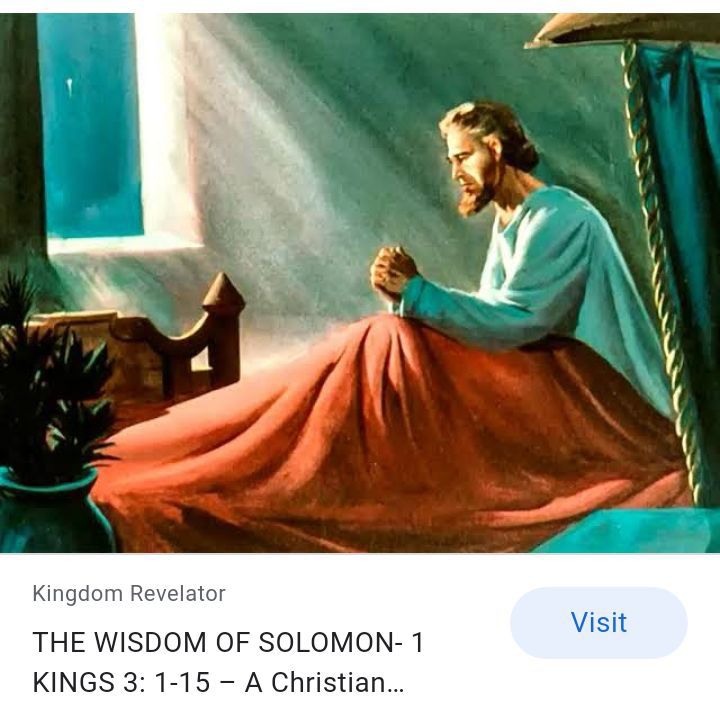
King Solomon reigned after the death of his father David. He loved the Lord and Walked according to his father David’s status. At the beginning of his reign, He went to sacrifice to the Lord in Gibeon. And God appeared to King Solomon in a dream and asked him to make a special request from him. Solomon asked for wisdom and understanding to govern his people well. God gave him wisdom, riches, honour and long life life in addition to Solomon’s wisdom and understanding.
When Solomon returned to Jerusalem, he stood before the Ark and offered burnt offerings to the Lord and feasted with Hus servants.
Solomon’s decisions included the following:
- King Solomon requested for wisdom and understanding instead of other material things.
- Solomon uttered about three thousand (3,000) proverbs and one thousand and five (1,005) songs which people learn from his wisdom.
- Solomon wisely decided the case of the two harlots by giving the child to the woman who wanted the woman to live.
- Solomon built a befitting temple in Jerusalem. He dedicated the temple with singing, dancing and sacrifice to God.
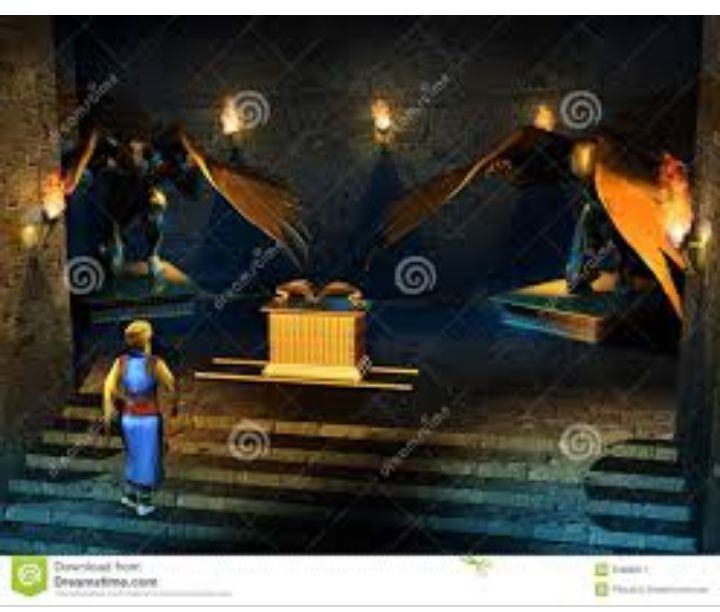
Solomon brought the Ark of God to the very presence of God
- He brought the Ark of God from it’s former place to the very presence of God, in the holiest part of the temple.
- He undertook commercial ventures which brought prosperity to his country.
Answer this question:
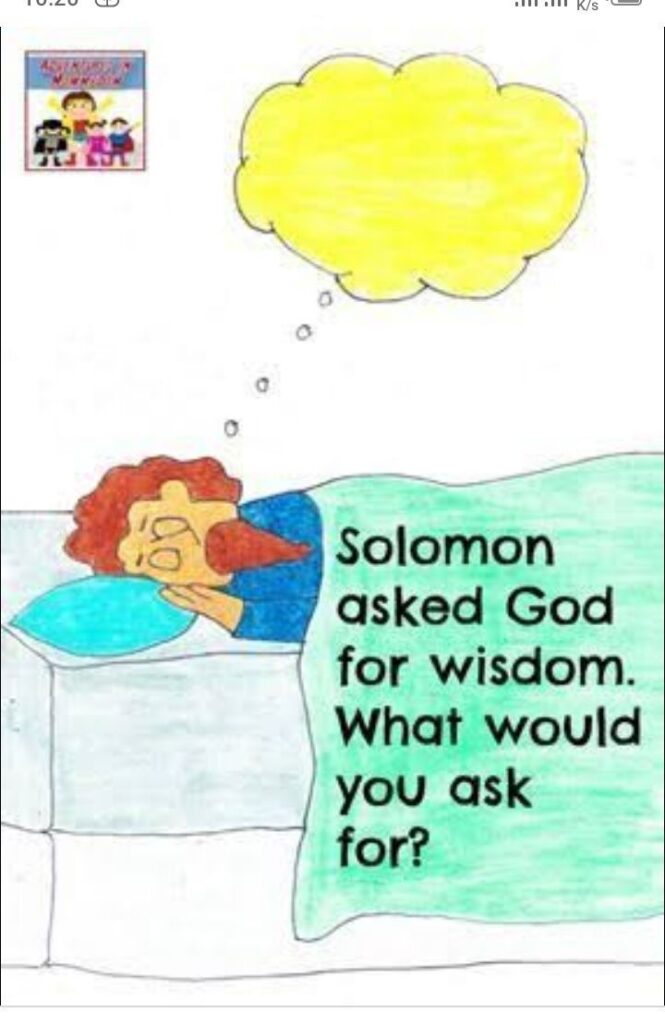
Give five reasons why you would ask for whatever answer you give.
Week 10…. 28th July, 2020
Hello Students,
How are you doing? Hope you are good and staying safe. God bless you all. Pls, note that you are to write your answers in your CRS note as well so that we can make reference to the corrections when we resume by God’s grace.
PUNISHMENT AND HOPE
Punishment ( Jer 2;4:14-19;1-12&32:25-35)
God sent Jeremiah to condemn Israel for her continual disobedience. Jeremiah reminded the Israelites commitment to God to God in the wilderness, and how their fathers had forsaken God and served idols. They had completely forsaken the Lord who brought them from Egypt to the Promised Land. He blamed the religious leaders for misleading the people. He lamented the up and down nature of the people because when they repented of their sins, they were forgiven,but if they return back to their sins, they would be punished. Jeremiah complained that God would punish the nation of Israel through the sword, hunger and pestilence because of their continuous disobedience to God’s commandments. Even the kings, prophets and princes would not be spared. He added that both political and religious leaders would be punished under the external rule of the Chaldeans and the Babylonians. Jeremiah said that this punishment is necessary because the people had committed great wickedness and idolatry against the Lord and he ( Jeremiah) would not plead for them.
Ezekiel’s Message on Punishment ( Ezekiel 18)
Ezekiel prophesied that the existing proverb in Israel that the fathers had eaten sour grapes and the children’s teeth were set on edge would no longer be the case. Because God has canceled this proverb and that the soul that sins shall die. There shall no longer be transfer of punishment from the father to his children. He explained further that a righteous father shall jot suffer for the sins of his wicked son and a righteous son shall not suffer for the sins of his wicked father. But if a wicked father repents and turn away from wickedness into righteousness, he shall not be punished. Ezekiel then summarized his message on the need for the people to repent from their sins because the Lord takes no pleasure in the death of anyone.
Jeremiah’s Message on Hope (Jer. 3:11-18;4:1-2 and 14)
Jeremiah assured Israel of hope for the nation. God was ready to revoke the punishment if they accept their guilt and sincerely repent. Faithless Israel must return to the Lord their master and God would gather her to Zion. He is ready to accept them and be their shepherd. God would give them knowledge and understanding and multiply them and the people will no longer follow their evil heart.
Jeremiah said that Israel’s refusal to acknowledge her guilt was as a result of false hope being preached to them by their false prophets. Jeremiah said That God would continue to punish them until they accept their guilt because their hope in God would only come if they accept their sins, repent and do what was right before God.
Lessons learnt from the Message of punishment and hope.
- Ezekiel’s message of punishment teaches individuals’ responsibility, every one is responsible for his/ her sins.
- God punishes those who fail to repent of their sins and show mercy to those who repents and ask for forgiveness.
Answer the following:
Explain the existing proverb in Israel that Ezekiel prophesied against.
Week 9….21st July, 2020
Hello Students
How are you doing? Hope you are good and staying safe. God bless you all. Pls, note that you are to write your answers in your CRS note as well so that we can make reference to the corrections when we resume by God’s grace.
DIVINE CALL OF EZEKIEL
( Ezekiel 1:2:3:1-11)
Ezekiel was the son of Buzi, and a pre-exilic prophet. He belonged to the priestly family in Jerusalem and was a contemporary of Jeremiah and Daniel. He had a vision of God by the River Chebar. He fell down and went into a trance. He heard a voice that called him, ” Son of man”, He was told to stand up and hear the word of God. The spirit if God stood him up and God spoke to him. God sent him to Israel, a nation of rebels who had rebelled Again st him. The people would know a prophet had been sent to them whether they hear or refuse to hear.
Ezekiel was not to be afraid of them or their words. He was not to be terrified at their looks though they were scorpion. The prophet saw a hand bearing a scroll on which were written words of lamentations, mourning and woe.
He was asked to eat the scroll and when he did, it tasted as sweet as honey. He was to go to the house of Israel and speak God’s words.
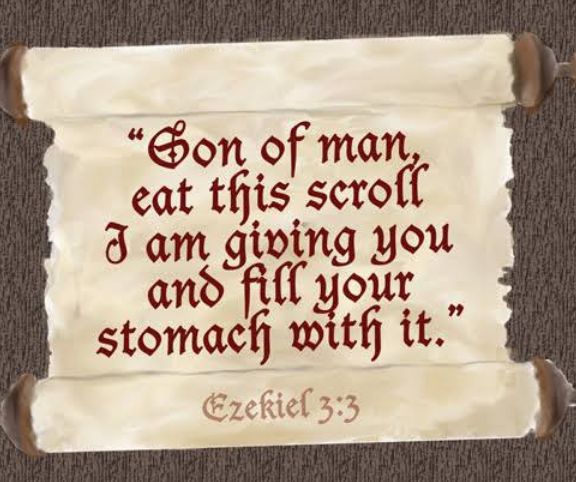
Ezekiel was to speak God’s words to them. He was not sent to strangers as they would have listened to him. But Israel would not listen to him because of their hardness and stubbornness. But God has made his face and forehead equally hard. Ezekiel was to speak God’s word with authority.
Questions:
Give three similarities in the call of the prophets already discussed.
Week 8…… 14th July, 2020
Hello Students,
How are you doing? Hope you are good and staying safe. God bless you all. Pls, note that you are to write your answers in your CRS note as well so that we can make reference to the corrections when we resume by God’s grace.
HOLINESS AND DIVINE CALL
Holiness refers to a state of constant purity of thought and action. Divine call on the other has to do with God calling someone into his service i.e. to preach the Gospel, to evangelise or to perform a task.
a. Holiness and Divine Call of Isaiah
( Isaiah 1:10-20; 6:1-7)
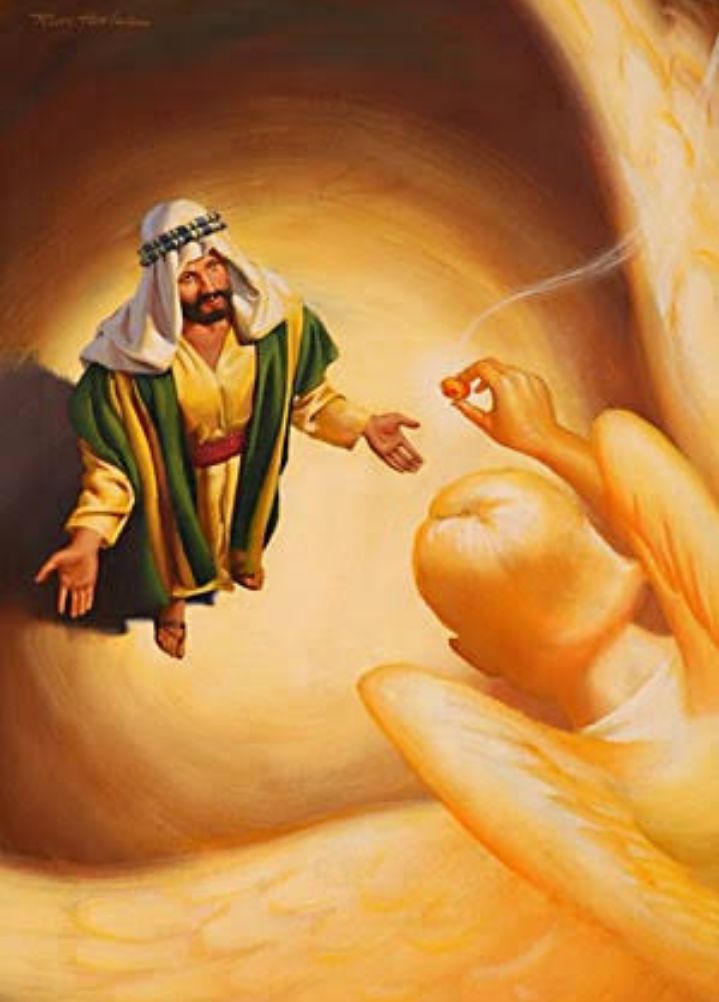
At the call of Isaiah…
Seraphim touched his lips with a burning coal from the altar.
The holiness of God was mostly emphasized by Isaiah. In the year that King Uzziah died, Isaiah had a vision of God’s holiness at the Jerusalem temple. He saw the holiness and the glory of God. He saw the Lord sitting upon a throne high and lifted up. Isaiah became conscious of his ungodliness as well as that of Israel. He felt lost and confessed that he was unclean and dwelt in the midst if unclean people. Seraphim flew to where Isaiah was and touched his lips with a burning coal from the altar. The burning coal cleanser him and was made holy before God. After which God called him to speak to the people of Israel, who would hear but not understand. His words would only harden their hearts until destruction comes.
Isaiah condemned The shallow religiosity or Israel. He said that God would no linger tolerate immorality, false religion and vain worship. Isaiah made a call to national repentance and holiness of life. He called the Israelites to repent by cleansing themselves from their wins. After repentance, they should live holy lives by learning to do well. Otherwise, if they refuse to repent they will perish.
b. The Divine Call of Jeremiah
(Jeremiah 1:4-10)
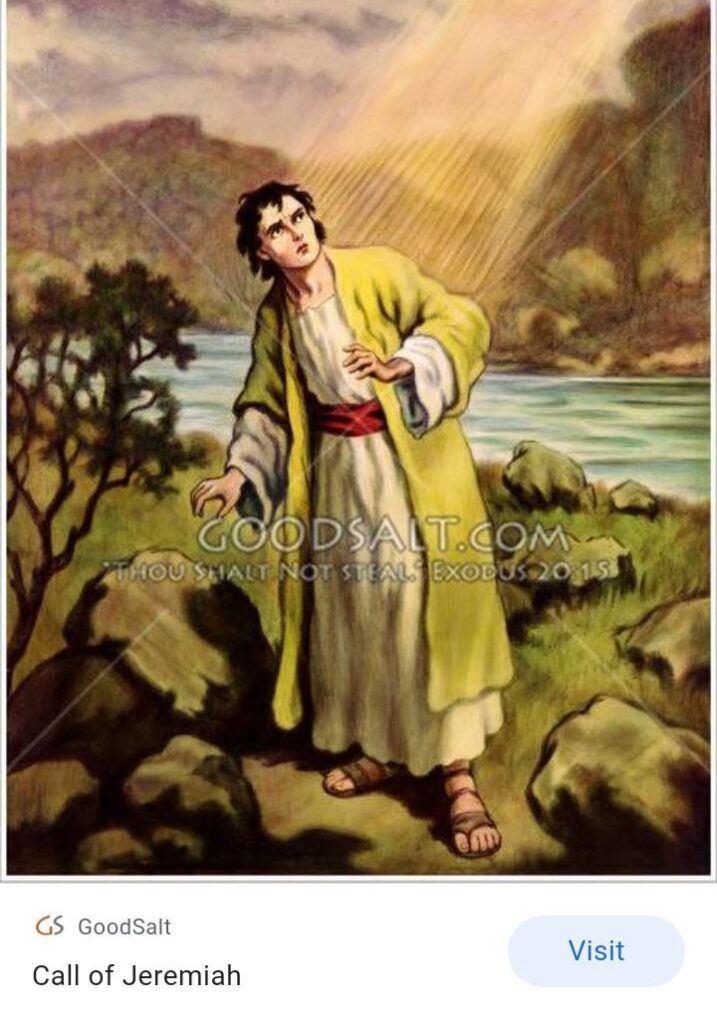
God called Jeremiah and told him that before he was born, He had marked him out as a prophet to the nations. Jeremiah protested at the call, claiming that he was a mere load and immature. God assured him on His presence and strength in his ministry.
God touched his mouth and said he had put His words into his mouth. And God set him over nations and kingdoms to destroy and overthrow, and to build and plant. Question:
Write out five lessons learn from the divine call of Prophets Isaiah and Jeremiah.
7th week….. 7the July, 2020
Hello Students,
How are you doing? Hope you are good and staying safe. God bless you all. Pls, note that you are to write your answers in your CRS note as well so that we can make reference to the corrections when we resume by God’s grace.
DIVINE LOVE
The Love of God (Hosea 1; 2; 3; 4)
God demonstrated his love for Israel in Hosea’s marriage. God asked Hosea to marry a wife of harlotry.
Hosea married Gomer and she gave birth to the first son, and Hosea called him Jezreel, which means, ” God would punish the house if Jehu because of their sins for killing the kings of Israel and Judah and putting an end to the kingdom of Israel. Gomer bore another child , a daughter, and was named ” Not pitied”. This means that, God would not pity Israel any more because of their sins”. Gomer’s third child , a son, God named, “Not my people” which means that God had rejected Israel as His people”.
Gomer left Hosea and the children and went after other men. But not withstanding, Hosea still loved her and paid to bring her back. Thus, God compared His love for the Israelites to the marriage of Hosea and Gomer.
God represents Hosea(faithful partner), while Gomer represents the Israelites (unfaithful partner). Despite God’s continuous faithfulness to His covenant with their forefathers, the Israelites had been unfaithful.
Man’s Response to God’s Love( Hosea 6:1-11,14)
Hosea asked Israel to ; a positive response to God’s love, because despite their unfaithfulness, God is ready to take her back. God would bound the wounds of the people and allow them to live in His presence. Hosea urged them to seek to know the Lord by doing His will. Hosea said Israel’s love for God had been shallow, whereas God demanded steadfast love Israel like Adam has sinned by transgressing the Law.
The priests were not better. Israel must return to God with confession on her lips, because, neither Assyria nor her own efforts could save her.
According to Hosea if Israel repented, God would show her love and and she would blossom again like the Lilly. Israel should reject her idols because only God could sustain her. Hosea called upon Israel to be wise and understand the ways of God.
Hosea is known as the Prophet of love.
Lessons learn from Hosea’s message on divine love is that God’s love for man is the ultimate.
Questions:
Relate the marriage of Hosea to Gomer to the relationship of God and Israel in your own understanding of Hosea’s marriage story.
Week 6….. 31st June, 2020
Hi Students,
How are you doing? Hope you are good and staying safe. God bless you all. Pls, note that you are to write your answers in your CRS note as well so that we can make reference to the corrections when we resume by God’s grace.
TRUE RELIGION ( Amos 5:21-24)
Amos prophesied in the 8the century B.C. At this time the people of Israel committed a lot of sins and offered burnt offerings. They sang melodious songs with musical instruments thinking that God would forgive them because of their songs and sacrifices. Their religion lacked morality and sincerity.
In verse 21, Amos declared that God hates and despises their sincere religious feasts and solemn assemblies. God rejects their songs and sacrifices. What God demands from Israelis justice and righteousness. Amos concludes by saying, “But let justice roll down like waters, and righteousness like an ever flowing stream” (Amos 5:24). This is the theme of the message of Amos.
Amos condemned four false religious practices in Israel which included:
Emphasis on external worship to the neglect of morality
Wrong use of solemn assemblies.
Unhealthy attitude towards holy days.
Swearing in the name or pagan gods.
Amos recommended four things which are as follows:
More emphasis on true religion by practicing morality and not external worship alone.
Give up pagan practices at solemn assemblies, observe holy days in the spirit of true religion
Must return back to God in genuine repentance for the survival of the nation.
God’s punishment awaits them if they fail to to return back to God.
Lessons learnt from Social Justice and True Religion:
Regular attendance in church programmed does not guarantee right spiritual standing with God.
Answer the following questions:
-Describe four false religious practices in Israel That Amos condemned.
Week 5….23rd June, 2020
Hello Students,
How are you doing? Hope you are good and staying safe. God bless you all. Pls, note that you are to write your answers in your CRS note as well so that we can make reference to the corrections when we resume by God’s grace.
Social Justice
Social justice is the practice whereby we make sure that there is no oppression or discrimination against anyone on the grounds of tribe, nationality , political belief, status, sex and so on. In the time of Amos, social evils co- existed with religious evils.
The man ‘Amos’
Amos means burden bearer, a shepherd and a dresser of Sycamore tree. He hails from Tekoa in Judah. He was a prophet of social justice and was called from the Southern kingdom to prophesy against the social ills/ evils/ vices that prevailed in Northern Israel.
Amos condemned Israelites for lack of social justice in this regard:
- The traders cheated the poor by using false weight measures
- The judges could easily be bought over at the law court even with a pair of sandals and the poor were punished because of lack of justice
- The rich were getting richer while the poor were getting poorer
- The fat rich women of Samaria were making excessive demands from their husbands who in turn exploit and oppress the poor the poor. Amos refer to these women as ‘ cows of Bashan’
- Licentiousness( immoral sexual acts) also existed in which a father and son could go into the same maiden.
Amazing, the priest of Bethel reported Amos to the king accusing him of conspiracy and sedition. Amos was commanded to go back to Judah to continue his prophecy and earn his living there, but he should never prophesy in Bethel again. Amos replied that it was while he was tending his flock that God sent him to prophesy in Israel. He continued that he was not a prophet nor a prophet’s son but a herdsman and a dresser of sycamore trees before God called him to the nation of Israel. Amos concluded that since Amaziah stood against his prophecy, the following curses would befall him(Amaziah):
- His wife would become an harlot in the city
- His children would be killed by the sword
- His land would be divided by line
- Israel would go into exile.
- Attempt the following:
- Describe the man ‘ Amos’
- Compare the social and religious evils in the time of Prophet Amos to that of Nigeria situation today( Use at least four points for your comparison.
Week 4……16th June, 2020
Hello Students,
How are you doing? Hope you are good and staying safe. God bless you all.
Pls, note that you are to write your answers in your CRS note as well so that we can make reference to the corrections when we resume by God’s grace.
THE NEW COVENANT (Jeremiah 31:31-34, Ezekiel 36:25-28)
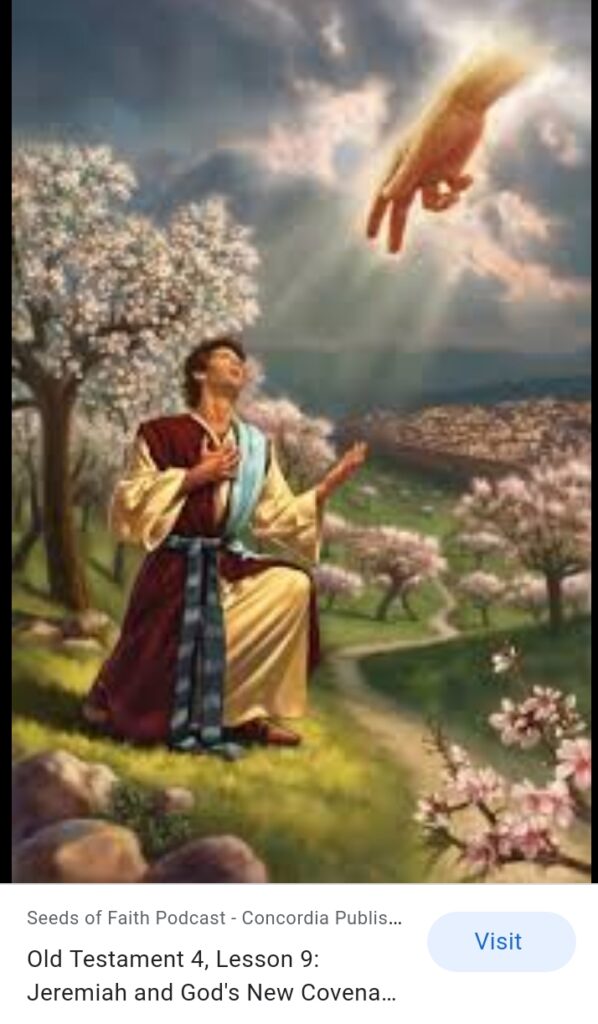
Prophet Jeremiah and God’s New Covenant
God discovered that Israelites could not keep the Old Covenant (commandments). God then fashioned a new and better way to help His people out by the new way. God would give His people a new heart and put His Spirit within His people.
Unlike the Old Covenant which was written on tablets and was broken, the New Covenant would be written in their heart and put in their mind so that no one needs to remind or teach his brother what he ought to do.
The new law will be based on reconciliation with God. God promised to restore the nation of Israel under the new dispensation.
According to Jeremiah (31: 32-34). God was disappointed in Judah and Israel because they had left the worship of true God and had gone after other gods. Israel had broken the covenant of God and had suffered greatly, they were taken into exile. Jeremiah said that God was ready to reconcile with Israel and Judah. God would make a New Covenant with both Israel and Judah. God would be their God and they His people. No one would teach his neighbor to know God, for each of them, from the least to the greatest, would come to know God, for God would forgive their iniquity and remember their sin no more.
According to Ezekiel, God would make a New Covenant with Israelites. Ezekiel said God would clean the people from all uncleanliness. He would give them a new heart and out a new Spirit with in them. He would replace the heart the heart of stone with a heart or flesh.
The New Spirit would make them obey all His commandments from within their hearts. God would make them dwell in the land.
Significance of the New Covenant
- God would rescue His people from their previous life of sin and idolatry.
- God would put His Spirit (Holy Spirit) within them.
- Many people within our society today are living the life of sin, materialism and stubbornness.
- There is need for internal cleansing and returning back to God.
NOTE: The Christian view of the New Covenant is a new relationship between God and humans mediated by Jesus which necessarily include all people, both Jews and Gentiles, upon sincere declaration that one believes in Jesus Christ as Lord and God.
Assignment:
- Tabulate the following in your CRS note and take note of each as you read:
2. Write three out of the features of the New Covenant.
Correction for week 3
- You shall have no other God except me
- You shall not make yourself a carved image
- You shall not call the name of the Lord your God in vain
- Remember the Sabbath day to keep it holy
- Honour your father and mother that your days maybe long on Earth
- You shall not kill
- You shall not commit adultery
- You shall not steal
- You shall not bear false witness
- You shall not covert your neighbors property
Week 3…… 9th June, 2020
Hello students,
How are you doing? I believe you are staying safe.
Pls, note that you are to write your answers in your CRS note as well so that we can make reference to the corrections when we resume by God’s grace.
God’s Covenant with Israel
Read this passages (Exodus 2: 23-25, 19, 24: 1-11)
God remembered His covenant with Abraham, Isaac and Jacob when the Israelites were oppressed in Egypt. God delivered them through Moses who brought them to the wilderness of Sinai.
God told Moses to charge the Israelites to consecrate themselves and be holy. God spoke to the Israelites through the thick cloud and asked the people to sanctify themselves and wash their clothes. After the consecration, the Lord delivered the Ten Commandments on Mount Sinai through Moses on the tablets and the people promised to obey the law. Moses wrote down the law, built an altar and erected twelve pillars. He ordered oxen to be killed for sacrificed and collected blood in two basins. He dashed half the blood against the altar and after he read the law to the people, he sprinkled the remaining blood on them saying that it was the covenant blood. After the event, Moses, Aaron, Nadab, Abihu and the seventy elders held a feast with God on the mountain.
However, Israelites got frustrated at the delay of Moses on Mount Sinai and Aaron made a golden calf at their demand to lead them. Moses was surprised at his coming, seeing that the people were feasting with the golden calf and he destroyed the tablets out of annoyance.
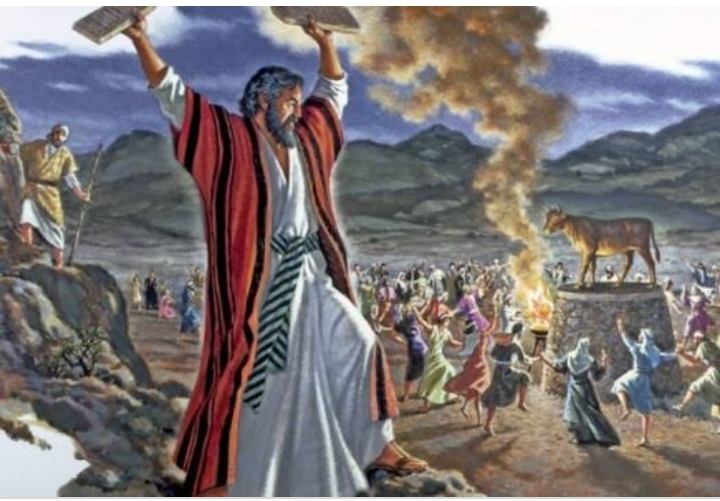
Moses destroyed the tablets out of annoyance
The next day, Moses pleaded for forgiveness for their sin of idol at and God agreed to the atonement, but the ringleaders would be punished.
Answer this question:
Read Exodus Chapter 20 and write out the Ten Commandments/Decalogue accordingly.
Correction on Covenant
- A covenant is a mutual agreement between two or more parties which could be between equal or unequal.
- Lessons learnt from God’s covenant with Abraham:
- Patience is important to receive God’s promises
- Obedience to God attracts God’s blessing.
- God can turn any situation around for our good like He did to Sarah
- Faith is necessary in receiving from God
Week 2………2/6/2020
Good morning students. I believe you are keeping safe.
THE COVENANT
What’s is a Covenant?
A covenant is a mutual agreement between two parties. A covenant could be between equal parties or unequal parties. Example of covenant between equals was the one between David and Jonathan while that of unequal parties was that of God and Abraham.
God’s Covenant with Abraham (Gen. 12: 1-9)
God called Abraham at the age of seventy five (75) years. He ordered Abram to leave his father’s house to a land that would show him.
God promised to make him a great nation, bless him those who bless him and curse those who curse him. By him, all the families of the earth would be blessed.

Abraham left his father’s house
Abram responded positively and departed with his wife Sarah, Lot his nephew, servants and their possessions. God appeared to him and showed him the land of Canaan as his inheritance. He built an altar there at Shechem. He later built an altar at Bethel.

Abraham built an altar for God at Shechem
God appeared to Abram at ninety-nine years old and to walk blamelessly before him. God promised to multiply him exceedingly, make him father of many nations, changed his name from Abram to Abraham and to make him fruitful. The covenant would be extended to Abraham’s descendants. Abraham’s part of the covenant was yo ensure every male child circumcised on the eight day after birth as a sign of the covenant. Sarai would give birth to a son in her old age of ninety. God changed her name to Sarah. In fulfilment of the covenant, Abraham and Sarah had a son and was named Isaac. He was circumcised on the eight day.
Attempt the following questions:
- What is a covenant?
- Give two lessons learnt from God’s covenant with Abraham
CORRECTION
Gen. 1 & 2
- Differences between the first and second accounts of the creation stories.
*In the first creation story:
- God’s spoken word translated into visible reality.
- God delegated power to man, to have dominion over all creatures he had created.
- God created in six days
- He rested on the Seventh day
- The first account portrayed God as being far from His creation by sending His spoken words.
*In the second account: - The account portrayed God as being very close to His creation
- There was a mention of the the river that got divided into four namely: Pishon, Gihon, Tigris and Euphrates
-There was also a mention of the tree of knowledge of good and evil - Marriage was instituted.
- Ways by which God proved His sovereignty in the creation stories: God
- controls the universe
- had power over all creations and situations
- delegated power to man, to have dominion
- is a God of order and perfection
- His spoken words translated into visible realities
- is Alpha and Omega
Hi class. Hope you are staying safe ?Welcome to CRS online class.
Week 1
26/5/2020
The sovereignty of God
Sovereignty of God means the supremacy of God over all things.The sovereignty of God is manifested in his creative activities. There are two creation stories. Genesis 1 and 2 God made the heaven and the earth within the period of six days and on the seventh day he rested.
| Day | Things created |
| 1 | light |
| 2 | firmament or heaven |
| 3 | Land ,seas and vegetations |
| 4 | Heavenly bodies i. e sun, moon and stars |
| 5 | Sea animals and birds |
| 6 | Land animals and man |
| 7 | He rested and blessed that day |
There was an existing land mass and no herb because God had not caused it to rain. God formed man from dust and gave him life. He planted a garden and put man in charge but with a command not to eat of the tree of knowledge of good and evil. There was none like Adam among the other creatures .God made him sleep and formed the woman from his rib. There by, he instituted marriage.

The creation story
Answer the following questions:
1.Differentiate between the two stories of creation.
2. State two ways through which God proved his sovereignty in the creation stories.
No Fields Found.God’s Covenant with Abraham (Gen. 12: 1-9)
God called Abraham at the age of seventy five (75) years. He ordered Abram to leave his father’s house to a land that would show him.
God promised to make him a great nation, bless him those who bless him and curse those who curse him. By him, all the families of the earth would be blessed.
Abram responded positively and departed with his wife Sarah and Lot his nephew and servants. God appeared to him and showed him the land of Canaan as his inheritance. He built an altar there at Shechem. He later built an altar at Bethel.

Abraham built an altar for God at Shechem
God appeared to Abram at ninety-nine years old and to walk blamelessly before him. God promised to multiply him exceedingly, make him father of many nations, changed his name from Abram to Abraham and to make him fruitful. The covenant would be extended to Abraham’s descendants. Abraham’s part of the covenant was yo ensure every male child circumcised on the eight day after birth as a sign of the covenant. Sarai would give birth to a son in her old age of ninety. God changed her name to Sarah. In fulfilment of the covenant, Abraham and Sarah had a son and was named Isaac. He was circumcised on the eight day.
CORRECTION
Gen. 1 & 2
- Differences between the first and second accounts of the creation stories.
*In the first creation story:
- God’s spoken word translated into visible reality.
- God delegated power to man, to have dominion over all creatures he had created.
- God created in six days
- He rested on the Seventh day
- The first account portrayed God as being far from His creation by sending His spoken words.
*In the second account: - The account portrayed God as being very close to His creation
- There was a mention of the the river that got divided into four namely: Pishon, Gihon, Tigris and Euphrates
-There was also a mention of the tree of knowledge of good and evil - Marriage was instituted.
- Ways by which God proved His sovereignty in the creation stories: God
- controls the universe
- had power over all creations and situations
- delegated power to man, to have dominion
- is a God of order and perfection
- His spoken words translated into visible realities
- is Alpha and Omega
Hi class. Hope you are staying safe ?Welcome to CRS online class.
26/5/2020
The sovereignty of God
Sovereignty of God means the supremacy of God over all things.The sovereignty of God is manifested in his creative activities. There are two creation stories. Genesis 1 and 2 God made the heaven and the earth within the period of six days and on the seventh day he rested.
| Day | Things created |
| 1 | light |
| 2 | firmament or heaven |
| 3 | Land ,seas and vegetations |
| 4 | Heavenly bodies i. e sun, moon and stars |
| 5 | Sea animals and birds |
| 6 | Land animals and man |
| 7 | He rested and blessed that day |
There was an existing land mass and no herb because God had not caused it to rain. God formed man from dust and gave him life. He planted a garden and put man in charge but with a command not to eat of the tree of knowledge of good and evil. There was none like Adam among the other creatures .God made him sleep and formed the woman from his rib. There by, he instituted marriage.

The creation story
Answer the following questions:
1.Differentiate between the two stories of creation.
2. State two ways through which God proved his sovereignty in the creation stories.
No Fields Found.